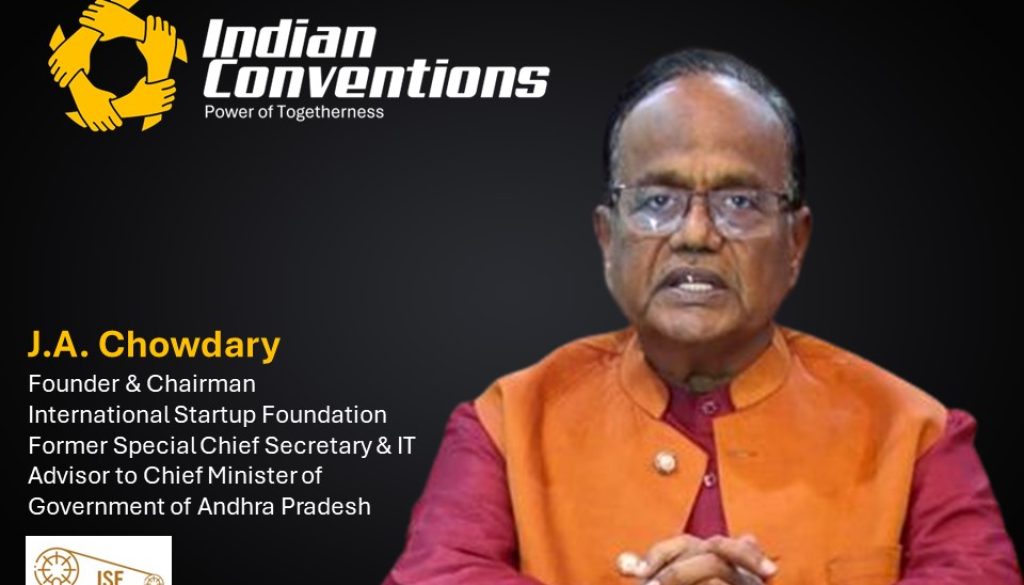During Chandrababu Naidu’s tenure as the Chief Minister of Andhra Pradesh from 2014 to 2019, the region lacked a startup ecosystem. When I joined as the IT advisor to the government, we identified the key areas necessary to ensure the survival and success of startups in the new Andhra Pradesh, developing the Five M Model:
Manpower: We recognized that skilled manpower is critical for new-age startups. Thus, we launched various programs to generate the necessary talent. For example, we initiated one-year Post Graduate Diploma programs in Digital Technologies at ISB. These programs, conducted at Tirupati and led by mentors from around the globe, saw graduates finding excellent placement opportunities, highlighting the importance of creating skilled manpower for startups.
Money: Securing funding was crucial. Under Chief Minister Naidu’s leadership, we announced a startup fund, which was kept for cabinet approval. This initiative aimed to provide the financial support startups desperately needed.
Market: Ensuring startups have access to revenue-generating customers is essential for their survival. We facilitated market access by reserving 15% of IT projects for startups in Andhra Pradesh, enabling them to gain crucial revenue. Additionally, we organized international startup conferences such as India’s first Blockchain Business Conference and the Vizag Fintech Festival. These events brought global visibility to Visakhapatnam and fostered opportunities for local startups to connect with investors and customers.
Meetings: Providing platforms for startups to showcase their products was a priority. Hosting international startup conferences and festivals attracted global attention, giving startups valuable networking opportunities.
Mentoring: Offering guidance to help startups succeed was crucial. Expert mentors assisted startups in navigating challenges, gaining customers, and achieving sustainable growth.
In a new initiative, we are planning a Startup Bus Yatra to bring decision-makers and mentors from North America and Europe to various locations across Andhra Pradesh. This initiative aims to foster rural startups, addressing unique challenges in rural areas and converting them into opportunities for innovation and growth.
In the Startup Bus Yatra, we are bringing almost 200 decision-makers from North America and Europe. All these C-Level Executives and Investors are expected to join the Startup Bus Yatra on September 30th. We are planning to take about three or four buses. All these decision-makers or mentors from various countries will participate in the bus yatra to different locations, such as SRM University in Amravati, Gitam University in Vizag, IIT Tirupati, etc. We are going to focus more on startups because in India, there are a lot of issues and a lot of unsolved problems in rural areas, and these unsolved problems are opportunities for any startup.
With a vision of making India the world’s startup capital, especially focusing on rural startups, we are making a concerted effort to create job opportunities and wealth. We believe that rural problems present significant opportunities for startups, and with the right support, these startups can become unicorns.
Focusing on rural startups is essential, considering the high population density and the need for economic development in these areas. The International Startup Foundation (ISF) is playing a key role by providing funding and mentorship to startups across India, with a particular emphasis on rural innovation.
India, with its vast consumer base and available technologies, is positioned to become a global leader in startups. The ISF’s initiatives, coupled with the leadership in Andhra Pradesh, aim to create sustainable solutions and a robust startup ecosystem that can be replicated across the country.
By addressing the challenges of job creation in the face of technological advancements and automation, we are set to transform India into a startup nation, fostering economic growth and job creation.
Recognizing the challenges posed by technological advancements and automation, we knew we needed to rethink job creation strategies. The International Startup Foundation (ISF) is focused on creating opportunities in areas like agriculture, healthcare, and fintech, where unsolved problems abound. Each of these problems represents an opportunity for startups. For example, during a startup conference in Bangalore, a participant addressed the issue of labor shortages in agriculture by developing a prototype to automate farming tasks, demonstrating the potential for innovative solutions to rural challenges.
We see immense potential in rural startups. With a population of 1.5 billion and increasing consumerism, India is poised to become a global startup leader. The ISF is dedicated to helping startups address rural problems, offering sustainable solutions that can drive job creation and economic growth. By focusing on sectors like agriculture, healthcare, and fintech, and leveraging technologies such as robotics and AI, we aim to transform rural challenges into opportunities for innovation and growth.
In conclusion, our vision for Andhra Pradesh and India as a whole is to create a robust startup ecosystem that not only addresses local challenges but also sets an example for the rest of the world. With the right focus on manpower, money, market, meetings, and mentoring, we are confident that India can become the world’s startup capital, driving job creation and economic prosperity.

